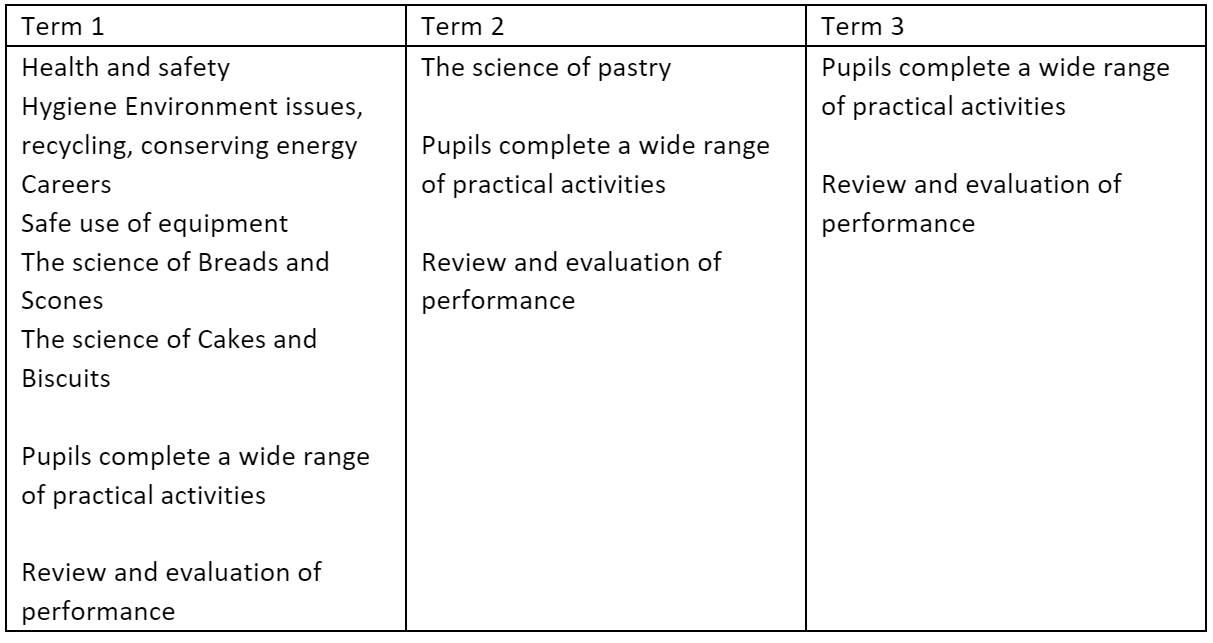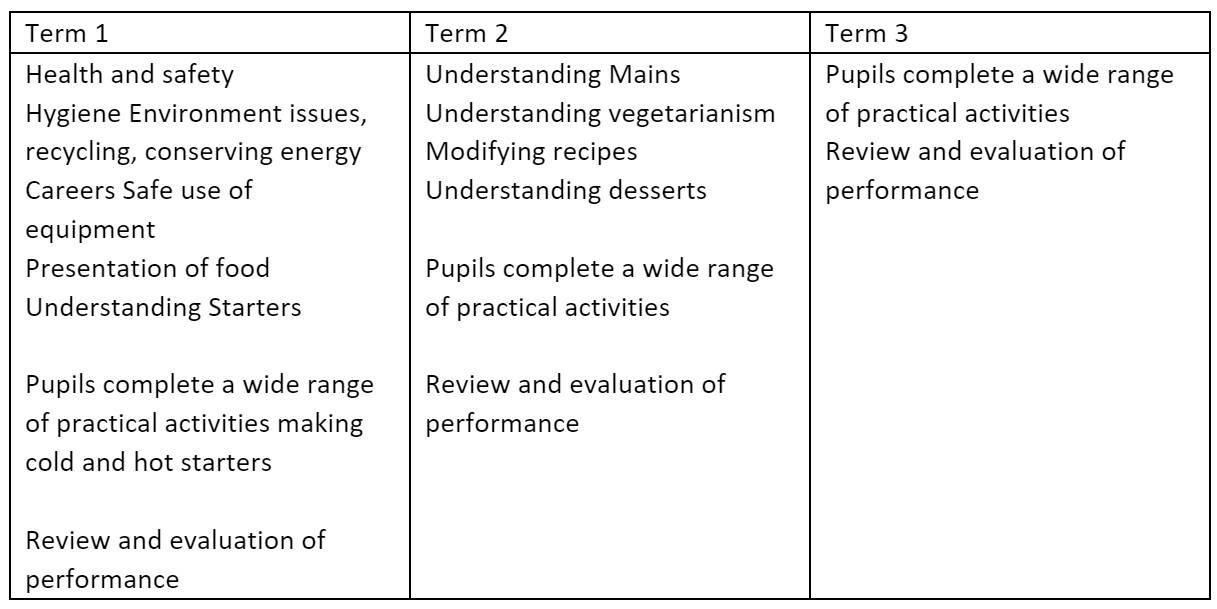GCSE Occupational Studies (CCEA)
This course is assessed through continuous assessment of portfolio-based work. These units equip students with the skills required within the catering industry. Pupils will learn the legislative requirements when handling food and how to work safely and hygienically in the kitchen.
Course structure:
Year 11: Patisserie and Baking unit (50%)
Year 12: Contemporary Cuisine unit (50%)
Students will complete 12 practical cooking assessments (each one worth 5% of the overall GCSE) and a range of knowledge tests, evaluations and diaries of learning activities over the two years. There is no external examination.
Year 11 Patisserie and Baking unit

Year 12 Contemporary Cuisine
